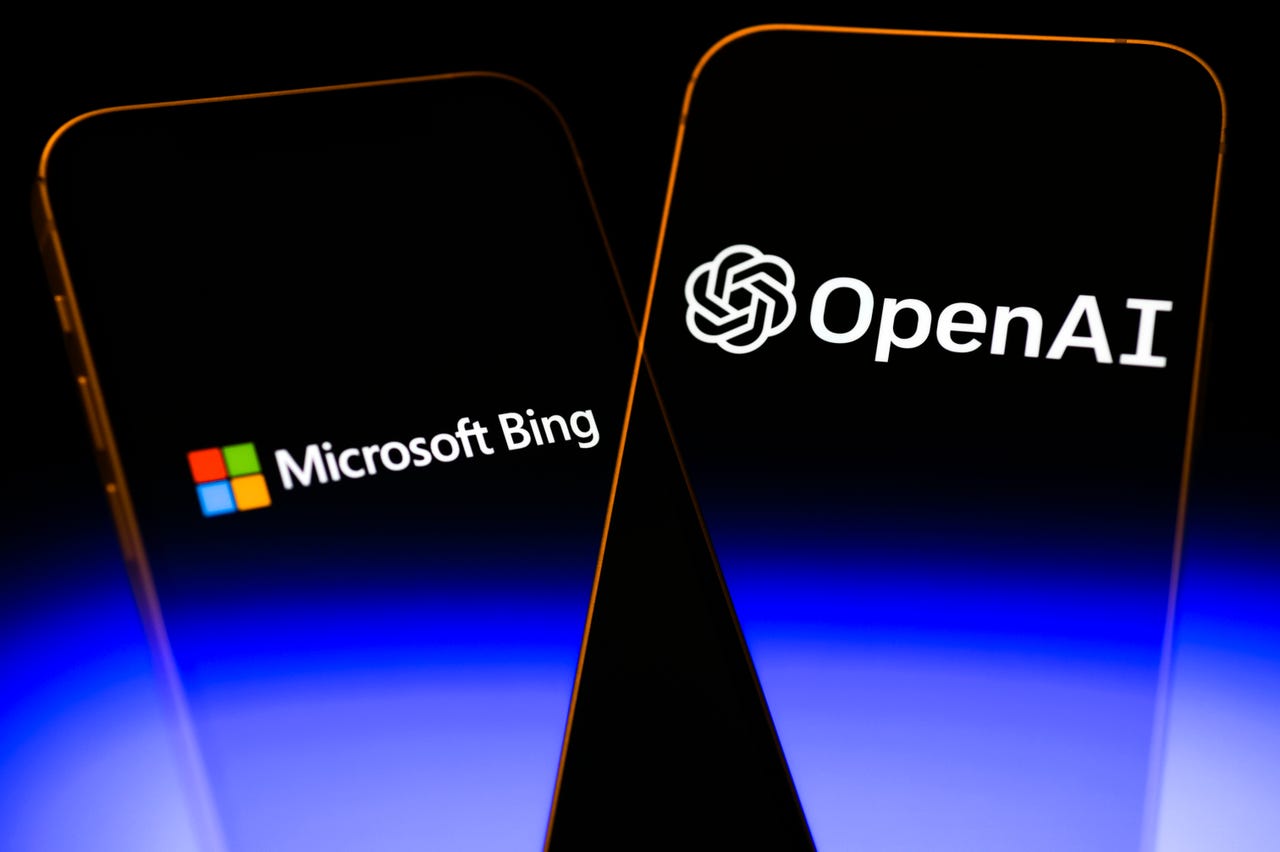'More powerful than ChatGPT': Microsoft unveils new AI-improved Bing and Edge browser


It was launched fewer than three months ago, but ChatGPT is already spurring dramatic changes at the world's biggest tech companies. On Tuesday, Microsoft unveiled a new version of the Bing search engine running on a next-generation OpenAI large language model, making it "more powerful than ChatGPT." It also introduced an improved version of the Edge web browser with AI-based featured.
"AI will fundamentally change every software category, starting with the largest category of all – search," Microsoft CEO Satya Nadella said.
Also: The best AI chatbots: ChatGPT and other fun alternatives to try
The next-gen large language model (LLM) powering the new Bing is customized specifically for search, Microsoft said. It's faster, more accurate and "more capable," Microsoft said, than ChatGPT or GPT-3.5, the LLM behind ChatGPT.
Applying this new AI to Bing, Microsoft said, has led to the core search ranking engine's "largest jump in relevance in two decades."
Microsoft also announced it's developed a proprietary model, called "Prometheus," that allows Bing to leverage the LLM in a way that delivers more relevant, timely and targeted results, with improved safety.
Meanwhile, the updated Edge browser now features two new capabilities: chat and compose. You can use the chat function to ask follow up questions. For instance, you could ask the Edge Sidebar for a summary of a lengthy financial report and then use the chat function to ask for a comparison to a competing company's financials. Edge can also help you compose content, such as a LinkedIn post, after you give it a few prompts.
The news from Microsoft comes just one day after Google unveiled Bard, its own experimental AI chat service designed to compete with ChatGPT. OpenAI, the makers of ChatGPT, also recently introduced its own premium version of the chatbot, ChatGPT Plus -- a logical development given the chatbot's meteoric rise. Built on top of GPT-3, OpenAI's family of large language models, ChatGPT has a wide range of use cases for people who need help producing or searching for language-based information.
Anticipating the transformational change on the horizon, Microsoft has been working with OpenAI for years. Just last month, Microsoft confirmed a multi-year, multi-billion dollar investment in OpenAI. This comes on top of Microsoft's $1 billion investment in OpenAI in 2019. As part of that earlier deal, OpenAI agreed to build its AI models on Microsoft Azure.
Microsoft also recently announced the general availability of its Azure OpenAI Service, allowing more businesses to use OpenAI's Azure-hosted and trained large language models (LLMs), such as GPT-3.5. Meanwhile, Microsoft's Power BI is using GPT-3 to generate formulae and expressions.
Microsoft is investing heavily in OpenAI's technology because it believes it can transform core web tools like search engines, delivering answers to questions that are too complex for current search engines. With the ability to summarize information and deliver interactive chat experiences, search engines based on these new LLMs should give users what they're looking for.